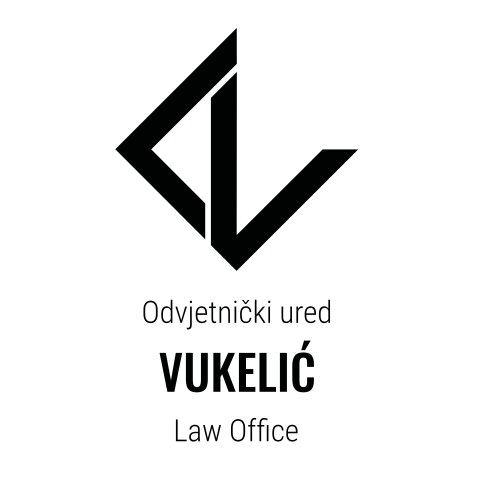Best Employment Rights Lawyers in Croatia
Share your needs with us, get contacted by law firms.
Free. Takes 2 min.
Or refine your search by selecting a city:
List of the best lawyers in Croatia
About Employment Rights Law in Croatia
Employment Rights in Croatia are governed by a comprehensive legal framework designed to ensure fair work practices and protect both employees and employers. The key legislative document is the Labour Act, which covers contracts of employment, working hours, rest periods, minimum wage, employee safety, and termination of employment, among other areas. These laws are aimed at fostering a balanced relationship between workers and employers, while also integrating EU directives and standards.
Why You May Need a Lawyer
Individuals may require legal assistance in the field of Employment Rights for various reasons. Common situations include disputes over contract terms, unfair dismissal claims, discrimination at the workplace, or clarifications on employee benefits and entitlements. A lawyer can also help navigate the complexities of labor laws and negotiate on behalf of the client to resolve conflicts effectively. Whether seeking compensation for wrongful termination or ensuring compliance with employment regulations, legal advice is often crucial.
Local Laws Overview
The Labour Act is the primary piece of legislation governing employment relations in Croatia. It outlines employee rights, such as the right to overtime pay, annual leave, paid maternity and paternity leave, and safe working conditions. Additionally, Croatian employment law prohibits discrimination based on gender, age, race, religion, disability, and sexual orientation. Employers are legally required to adhere to health and safety standards and are subject to penalties for failing to comply. Collective bargaining agreements further supplement these laws, setting specific terms and conditions for industries or sectors.
Frequently Asked Questions
What is the standard workweek in Croatia?
The standard workweek in Croatia is 40 hours, typically spread over five days. Overtime work is permissible but must be compensated appropriately.
How is the minimum wage determined in Croatia?
The minimum wage in Croatia is set by the government and is subject to periodic adjustments. It applies to all employees and is intended to ensure a basic standard of living.
What are the legal grounds for employment termination?
Employment can be terminated by mutual consent, resignation, redundancy, or due to employer-related reasons such as misconduct or poor performance.
Are employees entitled to severance pay?
Yes, employees may be entitled to severance pay based on the duration of their employment, provided the termination is not due to their fault.
What protections exist against workplace discrimination?
Discrimination on any grounds is strictly prohibited by law. Employees can seek legal recourse if they believe they have been discriminated against or harassed.
How are disputes between employees and employers resolved?
Disputes are typically resolved through negotiations, mediation, or legal proceedings if necessary. Labor Inspectorates and courts handle formal complaints.
Are there special regulations for foreign workers?
Yes, foreign workers must comply with immigration and employment procedures, including obtaining necessary work permits or residence visas.
What are Croatia's policies on maternity and paternity leave?
Female employees are entitled to maternity leave, generally lasting 98 days, which may be extended. Fathers can also take paternity leave under certain conditions.
What health and safety regulations must employers follow?
Employers must provide a safe workplace, following health and safety regulations to prevent occupational hazards and ensure employee welfare.
How do collective agreements affect employment conditions?
Collective agreements provide terms that may offer greater benefits than the statutory minimum, covering salaries, working hours, and other employment conditions.
Additional Resources
Individuals seeking further information can contact the Croatian Ministry of Labour and Pension System, Social Policy and War Veterans, labor inspectorates, or consult with legal experts specializing in employment law. Worker unions and NGOs may also provide valuable support and guidance regarding workers' rights and protections.
Next Steps
If you require legal assistance with Employment Rights in Croatia, start by consulting with a specialized employment lawyer who can offer professional advice tailored to your situation. Gather all relevant documents and evidence related to your employment issue. Engaging in informal discussions with your employer might help resolve some conflicts without legal proceedings. If needed, consider filing a formal complaint with labor authorities or seeking mediation as an alternative to going to court.
Lawzana helps you find the best lawyers and law firms in Croatia through a curated and pre-screened list of qualified legal professionals. Our platform offers rankings and detailed profiles of attorneys and law firms, allowing you to compare based on practice areas, including Employment Rights, experience, and client feedback.
Each profile includes a description of the firm's areas of practice, client reviews, team members and partners, year of establishment, spoken languages, office locations, contact information, social media presence, and any published articles or resources. Most firms on our platform speak English and are experienced in both local and international legal matters.
Get a quote from top-rated law firms in Croatia — quickly, securely, and without unnecessary hassle.
Disclaimer:
The information provided on this page is for general informational purposes only and does not constitute legal advice. While we strive to ensure the accuracy and relevance of the content, legal information may change over time, and interpretations of the law can vary. You should always consult with a qualified legal professional for advice specific to your situation.
We disclaim all liability for actions taken or not taken based on the content of this page. If you believe any information is incorrect or outdated, please contact us, and we will review and update it where appropriate.
Browse employment rights law firms by city in Croatia
Refine your search by selecting a city.

















